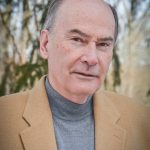[vc_row][vc_column width=”1/1″][mk_title_box color=”#17466a” highlight_color=”#000″ highlight_opacity=”0″ size=”28″ line_height=”34″ font_weight=”inherit” margin_top=”0″ margin_bottom=”18″ font_family=”none” align=”left”]
[/mk_title_box][vc_column_text disable_pattern=”true” align=”left” margin_bottom=”0″]The following is a selection of 233 Medline -indexed journal articles pertaining to spirituality & health published during 2013, from among the more than 1400 articles categorized under the subject headings of “Religion and Medicine,” “Religion and Psychology,” “Religion,” “Spirituality,” and “Pastoral Care”; plus the more than 600 relevant articles in Medline’s In-Process database not yet listed on the general Medline database at the time of this bibliography’s completion. The sample here indicates the great scope of the literature, but note that since Medline is itself a selective index of journals, an even broader range of material may be found through other health science indices/databases—e.g., CINAHL/Nursing or PsycINFO[/vc_column_text][mk_padding_divider size=”20″][vc_column_text disable_pattern=”true” align=”left” margin_bottom=”0″]Schaub, R. [New York Psychosynthesis Institute, Huntington, NY]. “Spirituality and the health professional.”
Substance Use & Misuse 48, no. 12 (Sep 2013): 1174-1179. [Abstract:] The inclusion of spirituality in addictions recovery began with the 12-steps program of Alcoholics Anonymous. Cofo unded by Bill Wilson, the 12-steps’ spiritual orientation is based on Wilson’s own recovery from alcoholism that was associated with a spiritual experience. His correspondence with Carl Jung, who verified the importance of Wils on’s experience, empowered Wilson to make spirituality central to the 12 steps. Spirituality remains a source of misunderstanding between the scientific, empiri cally informed mental health community, and the 12- step recovery movement. This article offers an outline of spiritual development, based on neuroscience, which the professional
can utilize in the spiritual aspect of a patient’s recovery. [Note: This is part of a special theme issue of the journal.][/vc_column_text][mk_padding_divider size=”30″][vc_column_text disable_pattern=”true” align=”left” margin_bottom=”0″]As seen on Pen Medicine[/vc_column_text][/vc_column][/vc_row]





